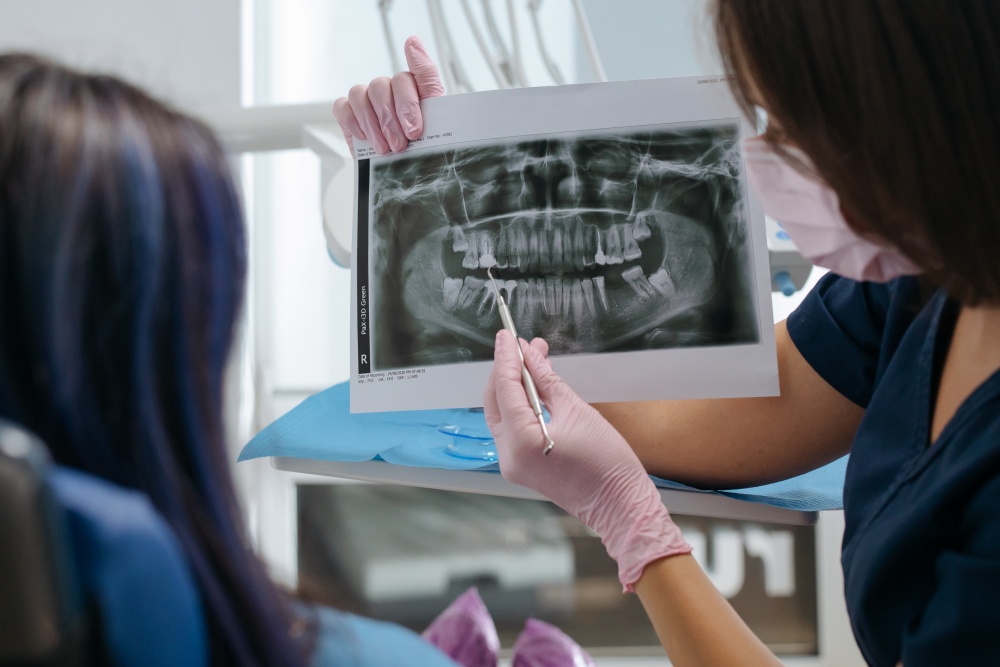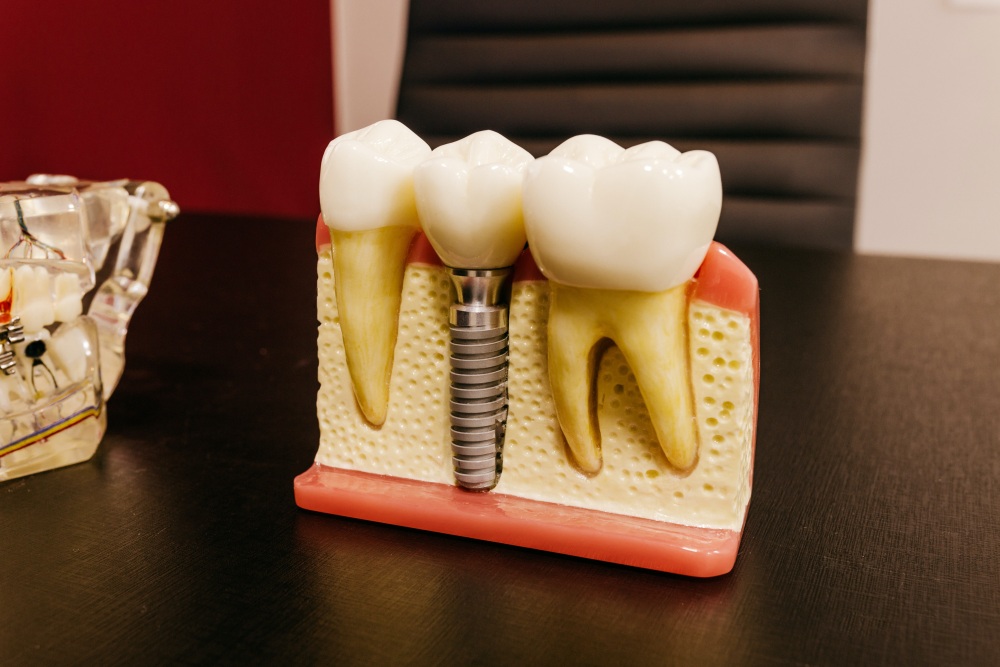October puts spotlight on dental hygiene
Fall is upon us. The weather is cooling down. It’s time to put the spotlight on Dental Hygiene Awareness Month – which the nation observes every October. At The Dental Medical Convergence, we’re advocating to spotlight oral health every day. We’re happy to use this month to highlight why oral health matters. We often share research showing how oral health connects to overall health.
Tags
- arterial plaque
- tooth infection
- Preventive Dentistry
- coronary heart disease
- dental disease
- Systemic Health
- dental health
- dental exam
- Oral Hygiene
- healthy eating
- gingivitis
- Impact of Oral Health
- Dental infections
- dental cleaning
- Pregnancy and oral Health
- gum disease
- oral cancer screening
- Oral Health in Pregnancy
- healthy diet
- cardiovascular disease
- Oral health and pregnancy
- Proper oral care
- oral systemic connection
- oral disease prevention
- oral health
- Proper oral hygiene
- flossing
- dentures
- electric toothbrush
- Dental care
- dry mouth
- Overall Health
- teeth brushing
- dental hygiene
- Oral-Systemic Link
- cavities
- healthy food choices
- Mouth and Body Connection
- gum infections
- periodontitis
- Dental Health Tips
- vascular disease
- mental health
- Health Warning Signs
Why regular trips to the dentist can benefit your overall health
Visiting the dentist isn’t just about checking on the health of your teeth and gums. It can benefit your overall health, too. After all, the mouth and body are connected.
Research from the Mayo Clinic shows poor oral health can contribute to certain diseases, such as endocarditis, cardiovascular disease, pregnancy and birth complications, and pneumonia. That’s why The Dental Medical Convergence is working to educate families, dentists, and physicians on the link between oral health and overall health.
Tags
- arterial plaque
- tooth infection
- Preventive Dentistry
- coronary heart disease
- dental disease
- Systemic Health
- dental health
- dental exam
- Oral Hygiene
- healthy eating
- gingivitis
- Impact of Oral Health
- Dental infections
- dental cleaning
- Pregnancy and oral Health
- gum disease
- oral cancer screening
- Oral Health in Pregnancy
- healthy diet
- cardiovascular disease
- Oral health and pregnancy
- Proper oral care
- oral systemic connection
- oral disease prevention
- oral health
- Proper oral hygiene
- flossing
- dentures
- electric toothbrush
- Dental care
- dry mouth
- Overall Health
- teeth brushing
- dental hygiene
- Oral-Systemic Link
- cavities
- healthy food choices
- Mouth and Body Connection
- gum infections
- periodontitis
- Dental Health Tips
- vascular disease
- mental health
- Health Warning Signs
Why you need to properly care for your child’s baby teeth
Your child’s primary teeth, also known as their “baby teeth,” are worth protecting. Just because they’ll lose these teeth doesn’t mean you shouldn’t properly and regularly clean them. Caring for these teeth starting at a young age means your child will adopt lifelong oral care habits, prevent future health problems, and avoid costly dental bills.
Tags
- arterial plaque
- tooth infection
- Preventive Dentistry
- coronary heart disease
- dental disease
- Systemic Health
- dental health
- dental exam
- Oral Hygiene
- healthy eating
- gingivitis
- Impact of Oral Health
- Dental infections
- dental cleaning
- Pregnancy and oral Health
- gum disease
- oral cancer screening
- Oral Health in Pregnancy
- healthy diet
- cardiovascular disease
- Oral health and pregnancy
- Proper oral care
- oral systemic connection
- oral disease prevention
- oral health
- Proper oral hygiene
- flossing
- dentures
- electric toothbrush
- Dental care
- dry mouth
- Overall Health
- teeth brushing
- dental hygiene
- Oral-Systemic Link
- cavities
- healthy food choices
- Mouth and Body Connection
- gum infections
- periodontitis
- Dental Health Tips
- vascular disease
- mental health
- Health Warning Signs
Common dental disease linked to serious health problems
The CDC reports that almost half of Americans age 30 and over have some form of gum disease. That’s a lot of people affected by something that is preventable. It’s also concerning because if gum disease is not properly treated, it can lead to cardiovascular and respiratory problems, diabetic complications, and other diseases. That’s why we created a PDF guide, “How gum disease affects overall health,” to provide you with all the research, prevention tools, and helpful resources you need to prevent and/or treat this disease.
Tags
- arterial plaque
- tooth infection
- Preventive Dentistry
- coronary heart disease
- dental disease
- Systemic Health
- dental health
- dental exam
- Oral Hygiene
- healthy eating
- gingivitis
- Impact of Oral Health
- Dental infections
- dental cleaning
- Pregnancy and oral Health
- gum disease
- oral cancer screening
- Oral Health in Pregnancy
- healthy diet
- cardiovascular disease
- Oral health and pregnancy
- Proper oral care
- oral systemic connection
- oral disease prevention
- oral health
- Proper oral hygiene
- flossing
- dentures
- electric toothbrush
- Dental care
- dry mouth
- Overall Health
- teeth brushing
- dental hygiene
- Oral-Systemic Link
- cavities
- healthy food choices
- Mouth and Body Connection
- gum infections
- periodontitis
- Dental Health Tips
- vascular disease
- mental health
- Health Warning Signs
How to help your kids build a lifetime of love for oral hygiene
Effective oral hygiene not only prevents cavities; research shows it can prevent cardiovascular disease, pregnancy and birth complications, and pneumonia. That’s why it’s a good idea to start caring for the mouth at a young age to build a lifetime habit. Children are like sponges. They absorb all the information they see and hear on a daily basis. Read ahead for tips to create a lifetime of love for oral hygiene at a young age.
Tags
- arterial plaque
- tooth infection
- Preventive Dentistry
- coronary heart disease
- dental disease
- Systemic Health
- dental health
- dental exam
- Oral Hygiene
- healthy eating
- gingivitis
- Impact of Oral Health
- Dental infections
- dental cleaning
- Pregnancy and oral Health
- gum disease
- oral cancer screening
- Oral Health in Pregnancy
- healthy diet
- cardiovascular disease
- Oral health and pregnancy
- Proper oral care
- oral systemic connection
- oral disease prevention
- oral health
- Proper oral hygiene
- flossing
- dentures
- electric toothbrush
- Dental care
- dry mouth
- Overall Health
- teeth brushing
- dental hygiene
- Oral-Systemic Link
- cavities
- healthy food choices
- Mouth and Body Connection
- gum infections
- periodontitis
- Dental Health Tips
- vascular disease
- mental health
- Health Warning Signs
3 ways to improve your oral hygiene routine
Caring for your mouth means caring for the health of your whole body. That’s why rethinking your oral hygiene routine could provide benefits beyond white teeth and fresh breath. It could mean avoiding cardiovascular disease, Alzheimer’s disease, and pregnancy complications. Dr. Chuck Reinertsen discussed the benefits of changing the way you care for your dental health during a webinar you can watch here.
Tags
- arterial plaque
- tooth infection
- Preventive Dentistry
- coronary heart disease
- dental disease
- Systemic Health
- dental health
- dental exam
- Oral Hygiene
- healthy eating
- gingivitis
- Impact of Oral Health
- Dental infections
- dental cleaning
- Pregnancy and oral Health
- gum disease
- oral cancer screening
- Oral Health in Pregnancy
- healthy diet
- cardiovascular disease
- Oral health and pregnancy
- Proper oral care
- oral systemic connection
- oral disease prevention
- oral health
- Proper oral hygiene
- flossing
- dentures
- electric toothbrush
- Dental care
- dry mouth
- Overall Health
- teeth brushing
- dental hygiene
- Oral-Systemic Link
- cavities
- healthy food choices
- Mouth and Body Connection
- gum infections
- periodontitis
- Dental Health Tips
- vascular disease
- mental health
- Health Warning Signs
To Floss or Not to Floss: Why Flossing in Oral Hygiene Matters
When it comes to taking care of our mouths, we’ve been taught wrong all along. Since childhood, we have been told to brush our teeth twice a day for as long as it takes to sing the “Happy Birthday” song twice — roughly two minutes. This just isn’t long enough, and as we get older, most of us spend even less time than this. We squirt some toothpaste onto our brushes, give them a swish around our mouths, and rush out the door. And spending so little time on brushing, it goes without saying that most of us don’t even bother to floss.
Tags
- arterial plaque
- tooth infection
- Preventive Dentistry
- coronary heart disease
- dental disease
- Systemic Health
- dental health
- dental exam
- Oral Hygiene
- healthy eating
- gingivitis
- Impact of Oral Health
- Dental infections
- dental cleaning
- Pregnancy and oral Health
- gum disease
- oral cancer screening
- Oral Health in Pregnancy
- healthy diet
- cardiovascular disease
- Oral health and pregnancy
- Proper oral care
- oral systemic connection
- oral disease prevention
- oral health
- Proper oral hygiene
- flossing
- dentures
- electric toothbrush
- Dental care
- dry mouth
- Overall Health
- teeth brushing
- dental hygiene
- Oral-Systemic Link
- cavities
- healthy food choices
- Mouth and Body Connection
- gum infections
- periodontitis
- Dental Health Tips
- vascular disease
- mental health
- Health Warning Signs
It’s Time We All Took a Minute to Think Again About Gum Disease and Overall Health
Too many Americans wait to feel pain before they seek dental help. When it becomes too uncomfortable to chew their food or the pulsing in their mouth keeps them up at night, it signals that an urgent visit to the dentist is in order. Unfortunately, some of the most severe dental complications don’t present with any pain at all — periodontal disease especially is almost always pain-free. There are usually very few symptoms of this condition; however, it can have severe effects on the body.
Tags
- arterial plaque
- tooth infection
- Preventive Dentistry
- coronary heart disease
- dental disease
- Systemic Health
- dental health
- dental exam
- Oral Hygiene
- healthy eating
- gingivitis
- Impact of Oral Health
- Dental infections
- dental cleaning
- Pregnancy and oral Health
- gum disease
- oral cancer screening
- Oral Health in Pregnancy
- healthy diet
- cardiovascular disease
- Oral health and pregnancy
- Proper oral care
- oral systemic connection
- oral disease prevention
- oral health
- Proper oral hygiene
- flossing
- dentures
- electric toothbrush
- Dental care
- dry mouth
- Overall Health
- teeth brushing
- dental hygiene
- Oral-Systemic Link
- cavities
- healthy food choices
- Mouth and Body Connection
- gum infections
- periodontitis
- Dental Health Tips
- vascular disease
- mental health
- Health Warning Signs
The difference between cure and prevention
Modern medicine has made leaps and bounds in finding cures for many different conditions and diseases. Scientists and agencies spend billions of dollars on funding research into device-focused treatment options that will eliminate symptoms and treat illnesses, but very little is done to delve into the root causes of our problems.
Tags
- arterial plaque
- tooth infection
- Preventive Dentistry
- coronary heart disease
- dental disease
- Systemic Health
- dental health
- dental exam
- Oral Hygiene
- healthy eating
- gingivitis
- Impact of Oral Health
- Dental infections
- dental cleaning
- Pregnancy and oral Health
- gum disease
- oral cancer screening
- Oral Health in Pregnancy
- healthy diet
- cardiovascular disease
- Oral health and pregnancy
- Proper oral care
- oral systemic connection
- oral disease prevention
- oral health
- Proper oral hygiene
- flossing
- dentures
- electric toothbrush
- Dental care
- dry mouth
- Overall Health
- teeth brushing
- dental hygiene
- Oral-Systemic Link
- cavities
- healthy food choices
- Mouth and Body Connection
- gum infections
- periodontitis
- Dental Health Tips
- vascular disease
- mental health
- Health Warning Signs









